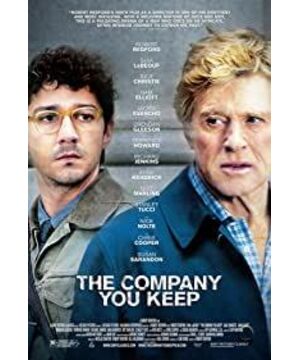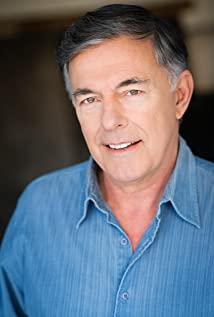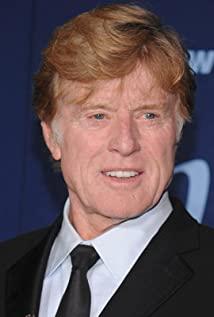Back in time 30 years ago, Americans didn’t necessarily think that way, because terror at that time was often carried out by homegrown extremists, such as several in the movie “The Company You Keep,” including Robert Jim Grant, played by Redford, Mimi Lurie, played by Julie Christie, and Sharon Solaz, played by Susan Sarandon. The plot of the movie goes something like this: After 30 years in hiding, Solaz was captured by the FBI in Vermont, a northeastern New England state. Grant, who had changed his name and worked as a lawyer in the neighboring New York state capital Albany, was exposed, and the FBI came to the door immediately. He absconded all the way, through Manhattan, Wisconsin, Chicago, and finally to Michigan to find Lu Li, his lover 30 years ago, and the only person among the 300 million Americans who can testify for him.
Although these extremists in the film are fictional, they are all based on real historical backgrounds. During the 1960s and 1970s, when the Chinese suffered from famine, engaged in four clean-ups, and fell into the turmoil of the Cultural Revolution, Americans also experienced a particularly turbulent period. Under the vague accompaniment of Bob Dylan music, sexual liberation, the civil rights movement, The feminist movement, the anti-Vietnam War, etc. are intertwined. A group of young people, dissatisfied with social reality and wanting to do something about change, formed the far-left group Weather Underground, or just Weatherman, named after Bob Dylan's A lyric, "You don't need a weatherman to know which way the wind blows." The Grants were "weathermen," who had nothing to do with Islam, were mostly white Midwestern families, and were well-educated, idealistic, hot-blooded youth. It is not an exaggeration to call them "terrorists" because they planned and participated in such sensational events as bombing government agencies and robbing banks. Unlike many of those who have been influenced by Islamic extremism in recent decades, the Grants are original American terrorists.
The film unfolds along two lines, in addition to the main line of Grant's search for Mimi Lurie, there is also a sub-line. Driven by professionalism, Sheppard, an investigative reporter for the local newspaper in Albany, followed Grant along the way, the two lines occasionally intersecting and more often independently. Through these two lines, the film touches on several questions that I am particularly interested in: What is the purpose of their resort to violence? After 30 years, how do they view the past? What is the difference between "weatherman" and al-Qaeda?
I share the profession of a journalist with Sheppard. I may not be interested in all of his methods of digging into news stories, such as using his ex-girlfriend's remaining goodwill to obtain clues, but his professionalism is worth watching and learning. Sheppard may not have been born when the "weathermen" were active, and of course he needed to understand the historical background, and he also needed to find answers to those questions, and this process helped me understand the film. Sheppard has generational differences with The Weatherman, and I also have racial and cultural differences.
Sheppard attacked Grant first. As a lawyer, the other party was a lawyer, and he did not leak anything. He didn't gain much. When it came time to say goodbye, he finally seized the opportunity to ask key questions.
"Because you're sympathetic to their goals? You agree with their strategy?" Sheppard asked, "they" referring to the "weathermen" of the year, and "strategy" of course referring to violence.
After three or two exchanges, Grant said, "30 years ago, smart people like you might have participated in their activities."
From Grant's words, I could hear no remorse, no self-blame, only boasting.
Sheppard then went to the prison to interview Solaz, and the footage of the two talking across the table lasted for 7 minutes. It was both a news interview—Sheppard asked, Solaz answered, and it was also Solaz's speech. Taking advantage of the opportunity to answer questions, Solaz looked back at history and explained the problems left by it, and she hoped to turn a rather heavy page in her personal history in a way that almost turned herself in.
Why did you decide to surrender after years of hiding? Because kids, kids change you, Solaz waits until kids grow up and mature enough to put things in perspective. Because of a crisis of conscience? Regret for past actions? Can't stand the self-blame that comes with it? Solaz and his companions were mostly born into decent families and had never been associated with violence. At that time, young people from many countries took to the streets, Japan, France, China, Angola, they were part of that revolution.
"Sounds trendy," Sheppard said.
Solaz replied, not because of fashion, don't think we are a bunch of hippies. Our government (referring to the US government) is murdering, it's all over the news, like the My Lai massacre. I know the case she's talking about. During the Vietnam War in 1969, the US military committed a crime in the village of My Lai, Vietnam, when a group of soldiers shot and killed more than 500 civilians, mainly women, children and the elderly.
Solaz went on to say, we protested, we sat in, but the war continued to escalate. She went on to mention Kent State and Jackson State. I also probably know the two cases she mentioned. In 1970, the Ohio National Guard opened fire on students protesting the Vietnam War at Kent State University, killing four and injuring nine. Eleven days later, Mississippi police opened fire on Jackson State University in the capital, killing two and injuring 12. Solaz went on to say that young people at the time were at risk of being drafted into the army, which was no different than waiting for a casualty to happen.
Sheppard was puzzled. "It sounds like an excuse. I have a hard time believing that violence was the only option at that time."
Solaz replied, "We think when the government kills, you sit at home. Doing nothing is violence." They hope to use their domestic violence to end America's foreign wars, a very special kind of "control violence with violence".
"(If given the chance,) would you guys do something like that?" Sheppard asked.
"Without children, without older parents, I would still do it, in a smarter, better, different way, but I would still do it. We made mistakes, but we were right," Solaz replied. .
In the movie, Solaz and the "weatherman" pals absconded when they robbed a Detroit bank causing casualties. In real life, "weathermen" have engaged in a series of violent activities. They have blown up police statues and smashed bank windows. They have also advocated underground guerrilla warfare and attacked important government facilities including the US Congress, the Pentagon, and the State Department. But not on a large scale. The purpose of the "weathermen" is to declare political opinions, not to cause heavy casualties. Before many terrorist activities are carried out, they often issue clear warnings and hope that people will stay away from the scene. After the Vietnam War, a small number of "weathermen" members still insisted on carrying out violent protests, and they took Marxism-Leninism as their ideological guideline. Several backbones of the "weatherman" organization have been prosecuted, but for a variety of reasons, very few are ultimately convicted. After the social unrest subsided, several well-known “weathermen” managed to reintegrate into the American mainstream, including several university professors, including Bill Ayers of the University of Illinois at Chicago. During the 2008 presidential election, Obama had trouble with Els, and the two men had a connection that was well known in Chicago.
The film also features Jed, a former "weatherman" who is a professor at a university in Chicago. In the lecture hall, he talked about Karl Marx and the interaction of productive forces and production relations, and occasionally looked back on his youth with the attitude of the old eighth way of talking about the war of resistance. Seeing Jade on screen, I couldn't help but think of Els in real life. He was opposed to violence within the organization back then. When he met Grant, who had fled from New York, years later, he felt as if he had seen a death star. Jade said his wife would rather forgive him for sleeping with a freshman than talking to Grant.
Solaz had reflected on the violence in the past, Jed resisted from beginning to end, and it was Mimi Luli who never regretted it. Lu Li still strongly condemned the government. She said that the government only "protects the rich, the rich and the richest." She will not surrender to such a government unless those big companies and politicians also surrender because of what they have done. At this time, Grant had the opportunity to formulate his own thoughts. He had a lot of regrets, and he was even willing to admit his mistakes. "We were destroyed by our own principles, and we gave up our more basic obligations." Grant realized that families and children can only is the most important thing in life.
I don't expect a movie to systematically figure out the difference between Islamic extremists and Native American terrorists, but at least one thing is clear. Extremists don't care about the world, and they preach the benefits of being a martyr, but to Americans, 72 virgins in paradise probably won't compare to a real-life housewife. The film also uses a certain amount of ink to show the difference between generations. The idealism of Grant, Solaz, and Lu Li and the accompanying extremism have ceased to exist in the Sheppard generation. Young people are willing to listen to the stories of the past. The next concern is the update on Facebook. Of the 11 statuses, including single, engaged, married, fairly complicated, separated, divorced, etc., which one best fits your situation on that day?
View more about The Company You Keep reviews











